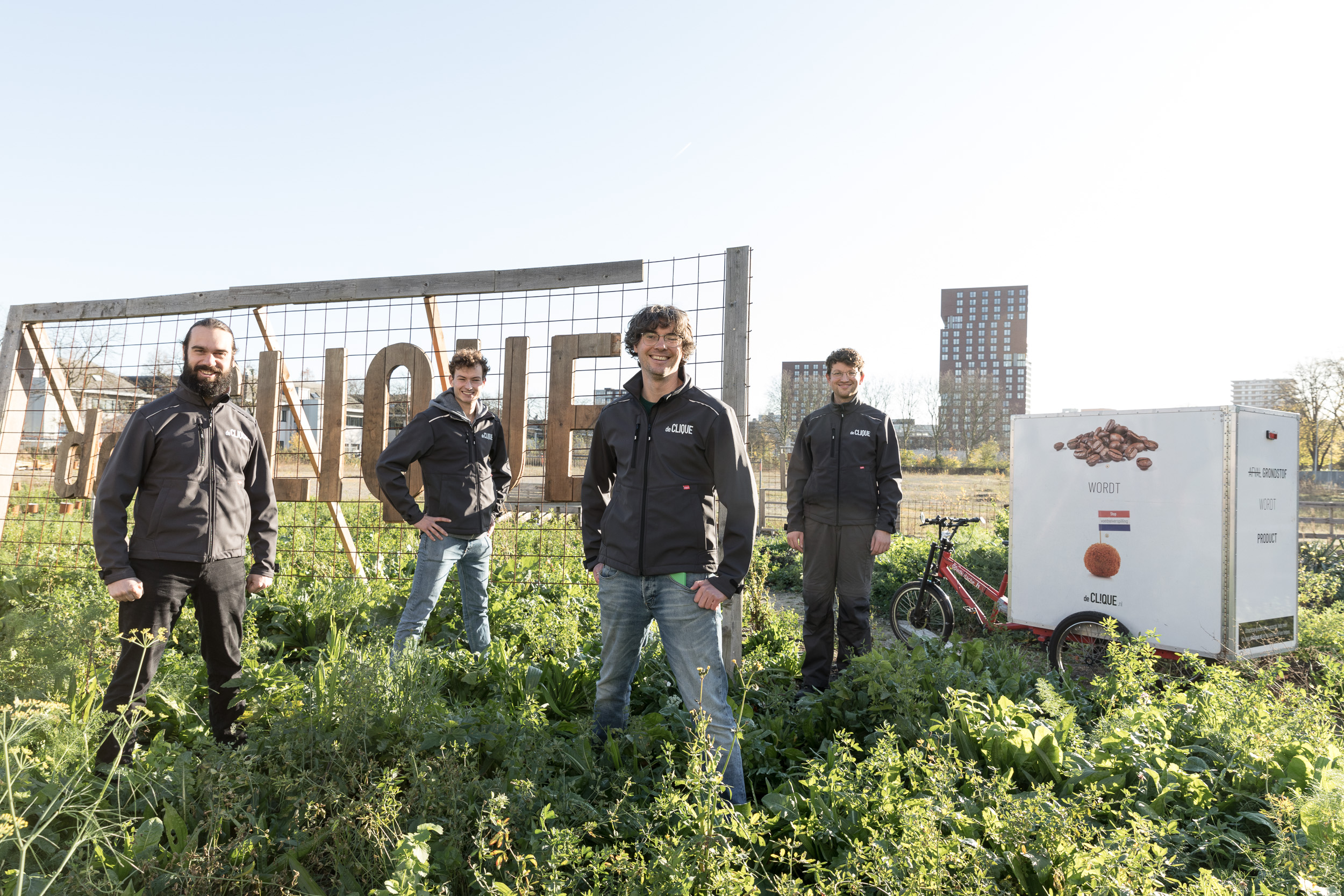
This is... De Clique
De Clique utilizes as much (organic) waste from urban environments as possible as raw materials for new products. For this purpose, The Clique offers a raw material service. Raw materials (formerly waste) are collected separately from customers such as large companies, restaurants, and caterers, and converted as much as possible into new products that are then returned to the customers. This completes the circle, ensuring that we continue to use raw materials instead of disposing of them. The Clique demonstrates that a circular economy is possible.
Valuable, shorter, and circular chains
Organic waste streams from the city, such as coffee grounds, food scraps, and other food waste, are typically discarded as waste and incinerated. The valuable nutrients that these organic waste streams still contain are not utilized. By separating these streams at the source, they can be used as raw materials for new food products. This creates valuable, shorter, and circular chains.
"A raw material for new food products"

Organic waste from the city
Founders Bas van Abel, also founder of Fairphone, and Anja Cheriakova, founder of BinBang, positioned De Clique as the orchestrator of waste streams.
Under service contracts, it collects raw materials (formerly waste) separately from customers such as large companies, restaurants, supermarkets, and caterers in a city.
Creating new products
At the urban hub, as much of that waste as possible is processed into new products, such as oyster mushrooms from coffee grounds, or forwarded to other processors, like PeelPioneers, which processes orange peels. This results in snacks made from oyster mushrooms and cookies with orange flavor, which are then sold and supplied back to the customers.

De Clique addresses three major challenges:
Resource shortage and depletion of the earth. The production and use of resources are currently linear. A resource is extracted or harvested, used once, and then discarded as waste. This continuous large-scale extraction of resources depletes the earth. A circular system prevents this. Processing by (partners of) De Clique prevents waste and incineration of resources. De Clique determines the avoided CO2 emissions per resource and product.
Business waste is wasted: Dutch companies create 5.3 million tons of waste per year. 50% of this is wasted. Moreover, 25% of urban transport is waste logistics. De Clique prevents this with electric vehicles and bicycles. The company measures the avoided CO2 emissions.
The existing waste system is not (sustainably) capable of using waste as a new resource. To convert waste into a new resource, quality and continuous supply of mono-streams are essential. Urban waste must be collected separately for this purpose. De Clique keeps track of the total number of separated and collected kilos that are reused in a circular system. Also, by the revenue generated from the sale of products, De Clique demonstrates that circularity is possible. And the more hubs and products, the greater the contribution.

